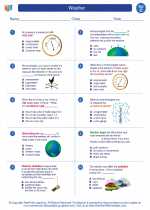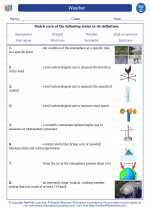Neurological Factors
Neurological factors refer to the various elements within the nervous system that can impact an individual's thoughts, feelings, and behaviors. These factors play a crucial role in regulating bodily functions, processing sensory information, and influencing cognitive processes. Understanding neurological factors is essential for comprehending how the brain functions and how it can impact overall health and well-being.
Key Concepts:
- Neurons: These are the basic building blocks of the nervous system. They transmit information through electrical and chemical signals.
- Neurotransmitters: These are chemicals that transmit signals between neurons. They play a critical role in regulating mood, behavior, and cognitive functions.
- Brain Structures: Various parts of the brain, such as the cerebrum, cerebellum, and brainstem, are responsible for different functions, including motor control, sensory processing, and higher cognitive processes.
- Neuroplasticity: This refers to the brain's ability to reorganize itself by forming new neural connections. It plays a role in learning, memory, and recovery from brain injuries.
- Neurological Disorders: Conditions such as epilepsy, Alzheimer's disease, Parkinson's disease, and multiple sclerosis are examples of neurological disorders that can significantly impact an individual's life.
Study Guide:
To gain a comprehensive understanding of neurological factors, consider focusing on the following areas:
- Learn about the structure and function of neurons, including the role of dendrites, axons, and synapses in neural communication.
- Explore the major neurotransmitters in the brain, such as serotonin, dopamine, and glutamate, and their impact on mood, behavior, and cognition.
- Examine the different regions of the brain and their specific functions, such as the frontal lobe's role in decision-making and the hippocampus's role in memory formation.
- Investigate the concept of neuroplasticity and how the brain can adapt and change in response to experiences and environmental influences.
- Study common neurological disorders, their symptoms, causes, and potential treatments. Gain an understanding of how these disorders can affect an individual's daily life.
By delving into these key areas, you can develop a strong foundation in understanding neurological factors and their significance in human physiology and behavior.
.◂Science Worksheets and Study Guides Third Grade. Weather
Study Guide Weather
Weather  Worksheet/Answer key
Worksheet/Answer key Weather
Weather  Worksheet/Answer key
Worksheet/Answer key Weather
Weather  Worksheet/Answer key
Worksheet/Answer key Weather
Weather  Vocabulary/Answer key
Vocabulary/Answer key Weather
Weather  Vocabulary/Answer key
Vocabulary/Answer key Weather
Weather 

 Worksheet/Answer key
Worksheet/Answer key
 Worksheet/Answer key
Worksheet/Answer key
 Worksheet/Answer key
Worksheet/Answer key
 Vocabulary/Answer key
Vocabulary/Answer key
 Vocabulary/Answer key
Vocabulary/Answer key

The resources above cover the following skills:
EARTH AND SPACE SCIENCE (NGSS)
Earth’s Systems
Students who demonstrate understanding can:
Represent data in tables and graphical displays to describe typical weather conditions expected during a particular season.